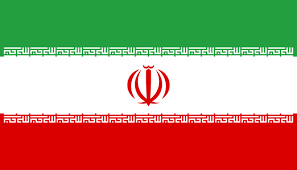Language/Iranian-persian/Culture/Lesson-23:-Persian-civilization-and-ancient-history
 Հայերէն
Հայերէն Български език
Български език 官话
官话 官話
官話 Hrvatski jezik
Hrvatski jezik Český jazyk
Český jazyk Nederlands
Nederlands English
English Suomen kieli
Suomen kieli Français
Français Deutsch
Deutsch עברית
עברית हिन्दी
हिन्दी Magyar
Magyar Bahasa Indonesia
Bahasa Indonesia Italiano
Italiano 日本語
日本語 Қазақ тілі
Қазақ тілі 한국어
한국어 Lietuvių kalba
Lietuvių kalba Νέα Ελληνικά
Νέα Ελληνικά Şimali Azərbaycanlılar
Şimali Azərbaycanlılar Język polski
Język polski Português
Português Limba Română
Limba Română Русский язык
Русский язык Српски
Српски Español
Español العربية القياسية
العربية القياسية Svenska
Svenska Wikang Tagalog
Wikang Tagalog தமிழ்
தமிழ் ภาษาไทย
ภาษาไทย Türkçe
Türkçe Українська мова
Українська мова Urdu
Urdu Tiếng Việt
Tiếng ViệtAs a Persian language teacher for over 20 years, I find it fascinating to delve into the rich history and culture of Iran. In this lesson, we will explore the ancient past of the Persian plateau, including notable civilizations such as Elam, Achaemenid Empire, and Parthian Empire. Let's dive in!
Once you've mastered this lesson, take a look at these related pages: Lesson 17: Persian cinema and music & Nowruz.
Elam
Elam was one of the oldest civilizations in the Persian plateau, dating back to the 4th millennium BC. It was situated east of Mesopotamia and reached its zenith from the mid-3rd to the mid-2nd millennium BC. The Elamites were known for their art and religion, which included the worship of several gods and goddesses. The Elamite language is considered an isolate, meaning it is not related to any known language of the Near East, including Persian. However, it is believed to have had a significant impact on the development of Persian culture and language.
Achaemenid Empire
The Achaemenid Empire was founded by Cyrus the Great in the 6th century BC and was the largest empire of its time, stretching from Greece to India. It was known for its advanced bureaucracy and societal systems, such as the Royal Road and Zoroastrianism, which was the dominant religion of the time. The Achaemenids were also known for their art and architecture, including the construction of Cyrus the Great's tomb, which still stands today in the city of Pasargadae.
Parthian Empire
The Parthian Empire was a powerful Iranian empire that lasted from 247 BC to 224 AD. It was known for its archery and equestrian skills in warfare and was successful in repelling the Roman Empire's advances. The Parthians also played a significant role in the spread of Buddhism in Central Asia and were known for their art, including the exquisite Parthian bronze statues.
As you can see, Persian history is rich and diverse, and these ancient civilizations played a significant role in shaping the culture and language of Iran. As a Persian language learner, it's essential to understand this history to gain a deeper appreciation of the language and its roots.
Vocabulary
Here are some relevant vocabulary words related to ancient Iranian civilizations:
| Iranian Persian | Pronunciation | English |
|---|---|---|
| قدیم | ghadim | ancient |
| تمدن | tamadon | civilization |
| هنر | honar | art |
| خدای ییزدی | khodaye yazdi | Zoroastrianism |
| شاهزاده | shahzadeh | prince |
| شاهنشاه | shahanshah | Emperor |
Grammar
As this is a history lesson, we will briefly touch on how to use verbs in their past tense form. In Persian, the past tense is formed by adding ـد to the stem of the verb. For example:
- خوردن (to eat) -> خورد (ate)
Here are some more examples:
| Infinitive Verb | Past Tense Verb |
|---|---|
| خریدن | خرید (bought) |
| کتاب خواندن | کتاب خواند (read a book) |
| رفتن | رفت (went) |
Exercises
- Translate the following sentences into Persian:
- The Elamites were known for their religion.
- Cyrus the Great founded the Achaemenid Empire.
- The Parthians were skilled horseback riders.
- I ate dinner last night.
- Conjugate the following verbs in the past tense:
- خریدن
- فروشیدن
- بخوانیدن
Sources
Other Lessons
- Sizdahbedar
- Lesson 16: Persian poetry and classical literature
- Months of the year
- Iran Timeline
- The Iranian wedding
- Ramadan
- Lesson 10: Persian etiquette and hospitality
- Birthday
- The Bakhtiari
- Lesson 11: Persian holidays and celebrations


